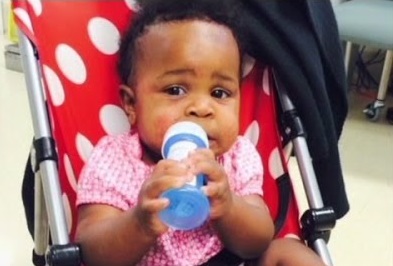I’ve been rooting for the cops to not catch the mother who abandoned her baby in a NYC subway station. Turns out they did, and she’s facing a felony charge for abandonment of a child.
The reason I’m feeling queasy about the trial is the poor incentives it creates for desperate parents. Given her limited options, the woman picked a pretty good place to leave a child. I can see the logic in picking a busily trafficked subway platform where there would be a slew of witnesses to see you push a stroller outside the subway doors and then reboard the train yourself.
It would be better to go to a firehouse or another designated Safe Haven, though I’m not sure how well known the existence of those dropoff points are, and, in any event, it appears that the toddler abandoned had aged out of their amnesty rules. But, the main thing is, the subway platform was a much better choice than one that maximized the mother’s chance of escaping unobserved while risking that the child would pass unnoticed, too.
I just don’t know how much use deterrents and harsh penalties are meant to be in cases like this. Giving up your child is a very powerful natural deterrent already; the state has a very limited ability to meaningfully augment the consequences of this decision. At a certain point, heavy penalties in these cases seem as futile as punishments for committing suicide (which has also been treated as a felony). The state should be most focused on deterring murder, abuse, or very reckless forms of abandonment, rather than illegal abandonment.
I’m not quite clear on why it would have been illegal for this mother to take her child to a safe haven. Nebraska had a more expansive safe haven law, which allowed parents to abandon children up to the age of 18 without repercussions and did wind up with over a dozen teens dropped off at hospitals. In the USA Today article I’ve just linked, Adam Pertman, executive director of the Evan B. Donaldson Adoption Institute, described the Nebraska law as the “worst-case scenario of unintended consequences.”
This seems a little like blaming a bully-reporting initiative for the sudden uptick in bullying reports. It’s hard to believe that many hereto stable families only needed the inducement of a safe haven law to abandon their children. If teens were being dropped off more frequently than Nebraska hoped, the law may have revealed a problem, rather than causing one.
Ultimately, there are at least two people that these laws should have a care of: the baby, and the mother (and other family). It should be as safe as possible to hand over a child, if a parent is determined to renounce it, for the sake of the child. And little may be gained by punishing the parent harshly. Abandonment is a crime committed in extremis, qualitatively different from most threats and assaults. We should save a child from a parent acting out of desperation and despair, but there is also a second life to save.













